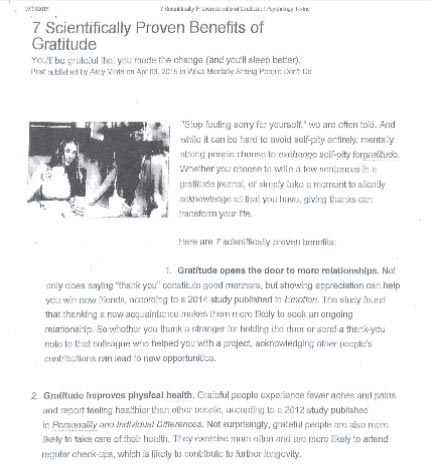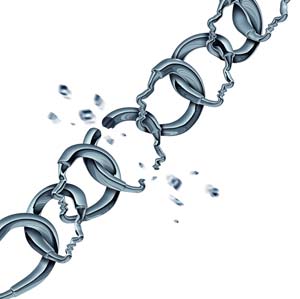 “Your playing small does not serve the world. There is nothing enlightened about shrinking so that other people will not feel insecure around you. We are all meant to shine, as children do. It is not just in some of us: it is in everyone, and as we let our light shine, we unconsciously give others permission to the same. As we are liberated from our fear, our presence automatically liberates others.”
~ Marianne Williamson
“Your playing small does not serve the world. There is nothing enlightened about shrinking so that other people will not feel insecure around you. We are all meant to shine, as children do. It is not just in some of us: it is in everyone, and as we let our light shine, we unconsciously give others permission to the same. As we are liberated from our fear, our presence automatically liberates others.”
~ Marianne Williamson
Give up on Playing Small
 “Your playing small does not serve the world. There is nothing enlightened about shrinking so that other people will not feel insecure around you. We are all meant to shine, as children do. It is not just in some of us: it is in everyone, and as we let our light shine, we unconsciously give others permission to the same. As we are liberated from our fear, our presence automatically liberates others.”
~ Marianne Williamson
“Your playing small does not serve the world. There is nothing enlightened about shrinking so that other people will not feel insecure around you. We are all meant to shine, as children do. It is not just in some of us: it is in everyone, and as we let our light shine, we unconsciously give others permission to the same. As we are liberated from our fear, our presence automatically liberates others.”
~ Marianne Williamson

 It’s the little things. Noticing what they like. What they need. How to step in and make their life a little easier. Connecting with them. Being considerate. Kind. Doing errands that are helpful. Thinking ahead of what makes them happy. One man said about his wife: “Lisa likes to read the local paper so I try to make sure she never has to go outside to retrieve it. She hates filling up the gas tank so I try to remember before trips to fill it up. She’s not a big fan of driving in general, so if there’s a shopping trip I can take her to on the weekend, I’ll do my best. In turn, Lisa excels at this much more than I do. When I’m tired and my schedule is overwhelming me, Lisa’s service goes on overdrive. She won’t let me do anything. I off-handedly mention I should eat sometime soon and suddenly a meal is in front of me. I reach to pick up the plate afterwards and she’s already there, scooping it away. “I’ll let you get back to work,” she says.
In any romantic relationship, it’s important to be mindful of each other and notice. Notice what makes them happy, what makes their life easier and how you can step in and make a difference. Make sure you are doing what they want, not what you think they should want or what you want for them. If you like classical music and your spouse likes country, you wouldn’t give them tickets to the symphony the same night Dolly Parton is in town! Be mindful of how and when to put their needs first. If you wake up and ask yourself, “How can I enhance my spouse’s life today?” and nothing comes to mind,
It can be fun trying to do this and something we all did when we dated. When dating someone we like it’s easy to spend time thinking about how we can please them. Just making him/ her smile was exhilarating! Giving attention and making them feel special made us feel special. It wasn’t a burden. But often when I work with couples who have been in a long-term relationship, focusing on the relationship is often not a priority. People are more focused on their responsibilities, like work, making money or raising their kids.
What makes people feel special and cherished is to be heard, validated, respected, and loved for who they are. The main reasons people have affairs is that they feel noticed, appreciated and alive due to the attention of someone else. We can keep the spark in our primary relationship by appreciating our partner, and staying mindful to continue to give to the relationship and make it a priority. When couples cherish each other, they can expect a relationship with much love and joy!
It’s the little things. Noticing what they like. What they need. How to step in and make their life a little easier. Connecting with them. Being considerate. Kind. Doing errands that are helpful. Thinking ahead of what makes them happy. One man said about his wife: “Lisa likes to read the local paper so I try to make sure she never has to go outside to retrieve it. She hates filling up the gas tank so I try to remember before trips to fill it up. She’s not a big fan of driving in general, so if there’s a shopping trip I can take her to on the weekend, I’ll do my best. In turn, Lisa excels at this much more than I do. When I’m tired and my schedule is overwhelming me, Lisa’s service goes on overdrive. She won’t let me do anything. I off-handedly mention I should eat sometime soon and suddenly a meal is in front of me. I reach to pick up the plate afterwards and she’s already there, scooping it away. “I’ll let you get back to work,” she says.
In any romantic relationship, it’s important to be mindful of each other and notice. Notice what makes them happy, what makes their life easier and how you can step in and make a difference. Make sure you are doing what they want, not what you think they should want or what you want for them. If you like classical music and your spouse likes country, you wouldn’t give them tickets to the symphony the same night Dolly Parton is in town! Be mindful of how and when to put their needs first. If you wake up and ask yourself, “How can I enhance my spouse’s life today?” and nothing comes to mind,
It can be fun trying to do this and something we all did when we dated. When dating someone we like it’s easy to spend time thinking about how we can please them. Just making him/ her smile was exhilarating! Giving attention and making them feel special made us feel special. It wasn’t a burden. But often when I work with couples who have been in a long-term relationship, focusing on the relationship is often not a priority. People are more focused on their responsibilities, like work, making money or raising their kids.
What makes people feel special and cherished is to be heard, validated, respected, and loved for who they are. The main reasons people have affairs is that they feel noticed, appreciated and alive due to the attention of someone else. We can keep the spark in our primary relationship by appreciating our partner, and staying mindful to continue to give to the relationship and make it a priority. When couples cherish each other, they can expect a relationship with much love and joy! This is flat-out abusive. When you know that what you’re doing is frustrating your spouse or even making him/her miserable and you do just enough to keep the platform of living together alive so that you can ultimately continue to make him/her miserable, that’s spiritually and emotionally sick. It’s malicious. “I’m not going to let you go but I’m also not going to change.” I can’t say this strongly enough: it is not only unkind demonstrates a real emotional disorder to treat anyone, much less your spouse, this way. Therapy needs to help the offending partner to bring an end to the evil (change needs to happen) rather than unwittingly offer a platform for the evil to continue (just try to do a little bit better so your spouse isn’t quite so angry and won’t separate from you).
If a marriage is going to be rebuilt after trust has been repeatedly broken, it has to be rebuilt on real repentance. The offending spouse has to demonstrate their horror at what they’ve done by going full speed in the opposite direction, not by taking a three-degree turn simply to show a tiny bit of “progress.”
This is true for major and minor issues, to a different degree. If my issue is being chronically late and I’m truly repentant, I start showing up early. If the issue is saying hurtful things, it’s not “repentance” to say hurtful things a little less often. Real repentance is stopping abusive language completely and intentionally saying kind, encouraging and praiseworthy things. If the issue is a lack of employment, I don’t settle for a part-time job. I work the part-time job and then spend just as many hours looking for a full-time job.
Real repentance reveals a real heart transformation; our spouse can see the change not just hear us say we intend to change.
Real repentance continues with the offending spouse owning his/her faults. It’s common for me to see a spouse who has acted deplorably start to resent having the spotlight put on him or her and thus respond by saying, “You know, he/she isn’t perfect either.”
The sarcastic part of me wants to say, “Really? Well, this changes everything. We’ll forget about your offending and hurtful action until we get this person you’re married to to be a little more patient when you mess up.”
A mark of real repentance is that a spouse will welcome, without resentment, increased accountability. If you say you’re not looking at porn or contacting a previous flirtation (or worse), then you shouldn’t have any problem letting your spouse pick up your phone or IPad and scrolling through the messages or history. There is no good reason I would care if my wife looks at every app on my phone. If she finds out I ordered her a surprise birthday present, that’s on her. There is no good reason I should be afraid if she checks out where I’ve been on Amazon or Netflix or surfing the web. Why would I care unless there was something I didn’t want her to see? And why wouldn’t I want her to see it unless I shouldn’t have been doing it to begin with?
Secrecy is hiding and by definition the opposite of intimacy. Repentance is, at root, a choice. You’re calling your spouse to make up his or her mind: do they want to be married, or not? You’re not interested in a quasi-marriage where they are half single and half spouse. You will be all-in with them, which includes forgiveness and generosity, but they have to recommit with conviction that they are committed to their primary relationship, not only in words but in actions and a changed heart.
One husband had several extramarital affairs. The wife was going to leave him. But she thought she saw a real change for the first time so they went to a place that specializes in sexual addiction. The counselor set out the conditions: “Your wife is going to write down thirty questions that she has always wanted to ask you. You’re going to be hooked up to a lie detector and a detective is going to monitor every answer. She’s finally going to get all her answers, and you’ll submit to this lie detector test every four months for the next two years. And by the way—one more act of unfaithfulness and she is going to divorce you.”
The husband agreed and through much counseling and confession their marriage was restored. At the end of two years the marriage had become so sweet that the wife told her husband, “You don’t have to take the lie detector tests anymore” but the husband said, “Yes, I do.”
You see, that’s real repentance. That’s a man who realizes the harm he has done and the harm he is capable of doing again so he welcomes accountability. His desire to stop hurting his wife is greater than his desire to “enjoy” doing what wounds her. He knows the latter desire is not yet nonexistent so he takes concrete steps to guard himself and ultimately protect his wife from further pain.
Contrast this with a husband who had “dabbled” in meth. He and his wife have two small children. When his wife said it wasn’t safe for her and the children to share the same house with a meth addict, but she was willing to work with him if he would enter recovery, he said he was done with meth, recovery wasn’t necessary, and he refused to consider any drug tests. That’s not repentance. Lying and addiction are virtual synonyms. A repentant addict knows this and admits it and sees the tests as necessary steps for healing.
One husband displayed controlling behavior over his wife until a separation woke him up. I told him he had to be more concerned for his wife’s welfare than he was over her return. “If you truly love her, you shouldn’t want her to return until you know she won’t be hurt by this behavior anymore.” He later told me that sentence hit him like a sledgehammer and he kept repeating it to himself until it was true. He really didn’t want his wife to agree to live together anymore until he was certain there had been a heart change sufficient enough to protect her from his former behavior. Today they are back together and enjoying the best season of their marriage to date.
If you are the offending spouse and your spouse is willing to hang with you, you owe him/her real repentance. Not a minor change that keeps them silent for a few more months, but an admission of guilt, a major overhaul of behavior, concrete accountability to maintain the change and a heart transformation so complete that you don’t even want to get back together until you are relatively certain that, your behavior won’t make your spouse miserable any more. Anything less is not real repentance.
If your spouse is on the treadmill of saying-I’m-sorry-but-never-changing you can say, with some integrity, “Being sorry isn’t about what you say or even about how you feel. It’s ultimately about what you do.”
Couples therapy and counseling, can help relationships mend and stay in integrity by emphasizing that love includes accountability. For happy couples, love is not only a feeling but an action.
This is flat-out abusive. When you know that what you’re doing is frustrating your spouse or even making him/her miserable and you do just enough to keep the platform of living together alive so that you can ultimately continue to make him/her miserable, that’s spiritually and emotionally sick. It’s malicious. “I’m not going to let you go but I’m also not going to change.” I can’t say this strongly enough: it is not only unkind demonstrates a real emotional disorder to treat anyone, much less your spouse, this way. Therapy needs to help the offending partner to bring an end to the evil (change needs to happen) rather than unwittingly offer a platform for the evil to continue (just try to do a little bit better so your spouse isn’t quite so angry and won’t separate from you).
If a marriage is going to be rebuilt after trust has been repeatedly broken, it has to be rebuilt on real repentance. The offending spouse has to demonstrate their horror at what they’ve done by going full speed in the opposite direction, not by taking a three-degree turn simply to show a tiny bit of “progress.”
This is true for major and minor issues, to a different degree. If my issue is being chronically late and I’m truly repentant, I start showing up early. If the issue is saying hurtful things, it’s not “repentance” to say hurtful things a little less often. Real repentance is stopping abusive language completely and intentionally saying kind, encouraging and praiseworthy things. If the issue is a lack of employment, I don’t settle for a part-time job. I work the part-time job and then spend just as many hours looking for a full-time job.
Real repentance reveals a real heart transformation; our spouse can see the change not just hear us say we intend to change.
Real repentance continues with the offending spouse owning his/her faults. It’s common for me to see a spouse who has acted deplorably start to resent having the spotlight put on him or her and thus respond by saying, “You know, he/she isn’t perfect either.”
The sarcastic part of me wants to say, “Really? Well, this changes everything. We’ll forget about your offending and hurtful action until we get this person you’re married to to be a little more patient when you mess up.”
A mark of real repentance is that a spouse will welcome, without resentment, increased accountability. If you say you’re not looking at porn or contacting a previous flirtation (or worse), then you shouldn’t have any problem letting your spouse pick up your phone or IPad and scrolling through the messages or history. There is no good reason I would care if my wife looks at every app on my phone. If she finds out I ordered her a surprise birthday present, that’s on her. There is no good reason I should be afraid if she checks out where I’ve been on Amazon or Netflix or surfing the web. Why would I care unless there was something I didn’t want her to see? And why wouldn’t I want her to see it unless I shouldn’t have been doing it to begin with?
Secrecy is hiding and by definition the opposite of intimacy. Repentance is, at root, a choice. You’re calling your spouse to make up his or her mind: do they want to be married, or not? You’re not interested in a quasi-marriage where they are half single and half spouse. You will be all-in with them, which includes forgiveness and generosity, but they have to recommit with conviction that they are committed to their primary relationship, not only in words but in actions and a changed heart.
One husband had several extramarital affairs. The wife was going to leave him. But she thought she saw a real change for the first time so they went to a place that specializes in sexual addiction. The counselor set out the conditions: “Your wife is going to write down thirty questions that she has always wanted to ask you. You’re going to be hooked up to a lie detector and a detective is going to monitor every answer. She’s finally going to get all her answers, and you’ll submit to this lie detector test every four months for the next two years. And by the way—one more act of unfaithfulness and she is going to divorce you.”
The husband agreed and through much counseling and confession their marriage was restored. At the end of two years the marriage had become so sweet that the wife told her husband, “You don’t have to take the lie detector tests anymore” but the husband said, “Yes, I do.”
You see, that’s real repentance. That’s a man who realizes the harm he has done and the harm he is capable of doing again so he welcomes accountability. His desire to stop hurting his wife is greater than his desire to “enjoy” doing what wounds her. He knows the latter desire is not yet nonexistent so he takes concrete steps to guard himself and ultimately protect his wife from further pain.
Contrast this with a husband who had “dabbled” in meth. He and his wife have two small children. When his wife said it wasn’t safe for her and the children to share the same house with a meth addict, but she was willing to work with him if he would enter recovery, he said he was done with meth, recovery wasn’t necessary, and he refused to consider any drug tests. That’s not repentance. Lying and addiction are virtual synonyms. A repentant addict knows this and admits it and sees the tests as necessary steps for healing.
One husband displayed controlling behavior over his wife until a separation woke him up. I told him he had to be more concerned for his wife’s welfare than he was over her return. “If you truly love her, you shouldn’t want her to return until you know she won’t be hurt by this behavior anymore.” He later told me that sentence hit him like a sledgehammer and he kept repeating it to himself until it was true. He really didn’t want his wife to agree to live together anymore until he was certain there had been a heart change sufficient enough to protect her from his former behavior. Today they are back together and enjoying the best season of their marriage to date.
If you are the offending spouse and your spouse is willing to hang with you, you owe him/her real repentance. Not a minor change that keeps them silent for a few more months, but an admission of guilt, a major overhaul of behavior, concrete accountability to maintain the change and a heart transformation so complete that you don’t even want to get back together until you are relatively certain that, your behavior won’t make your spouse miserable any more. Anything less is not real repentance.
If your spouse is on the treadmill of saying-I’m-sorry-but-never-changing you can say, with some integrity, “Being sorry isn’t about what you say or even about how you feel. It’s ultimately about what you do.”
Couples therapy and counseling, can help relationships mend and stay in integrity by emphasizing that love includes accountability. For happy couples, love is not only a feeling but an action.
 was forced to make his living as a writer (he became the most popular writer of his day, he thought having a wife would be a very good thing, and he soon entered into a very happy and fulfilling marriage to a young woman named Margaret.
In making his choice, Richard was already a wise man who, as a pastor, had seen the folly so many others had fallen into to. Thus, he was determined to “avoid the foolish passion which the world calls love.”
He didn’t minimize love, but sought a higher love: “I know you must have love for those [you marry],” he wrote, but he was insistent that it be a “rational” love that discerns “worth and fitness” in the loved, not “blind…lust or fancy.”[i]
Richard had seen how “blind lust and fancy” (sex appeal and romantic infatuation) could make seemingly wise people curiously blind to a person’s poor worth and low character so he determined early on that he would not be guided by those things.
Instead, he was determined to find a “worthy” spouse, and a “fit” spouse.
If you find yourself crazy with infatuation, and your highest desperate desire is to hear that they feel the same way about you, force yourself to ask two rational questions:
was forced to make his living as a writer (he became the most popular writer of his day, he thought having a wife would be a very good thing, and he soon entered into a very happy and fulfilling marriage to a young woman named Margaret.
In making his choice, Richard was already a wise man who, as a pastor, had seen the folly so many others had fallen into to. Thus, he was determined to “avoid the foolish passion which the world calls love.”
He didn’t minimize love, but sought a higher love: “I know you must have love for those [you marry],” he wrote, but he was insistent that it be a “rational” love that discerns “worth and fitness” in the loved, not “blind…lust or fancy.”[i]
Richard had seen how “blind lust and fancy” (sex appeal and romantic infatuation) could make seemingly wise people curiously blind to a person’s poor worth and low character so he determined early on that he would not be guided by those things.
Instead, he was determined to find a “worthy” spouse, and a “fit” spouse.
If you find yourself crazy with infatuation, and your highest desperate desire is to hear that they feel the same way about you, force yourself to ask two rational questions:

 We also use food for reasons other than nourishment.
It’s one thing to use substances within a healthy framework, but another to cross the line into addiction – and it can be very difficult to see the difference.
When we are in physical or emotional pain, we want relief immediately. When the nervous system is out of balance, we try to regulate ourselves in the best ways we know how. We turn to many substances and activities: alcohol, drugs, sex, shopping, the Internet, porn, gambling and gaming. What happens after a while is that we build up tolerance and after time you much consume more to get the same effect.
The Problem with addiction.
When you are in an altered state, you become very self-centered. Frequently, the addictive habit becomes your primary relationship. Now your partner becomes a competitor to the addiction for time and attention.
Transforming Addiction
Consider these questions:
We also use food for reasons other than nourishment.
It’s one thing to use substances within a healthy framework, but another to cross the line into addiction – and it can be very difficult to see the difference.
When we are in physical or emotional pain, we want relief immediately. When the nervous system is out of balance, we try to regulate ourselves in the best ways we know how. We turn to many substances and activities: alcohol, drugs, sex, shopping, the Internet, porn, gambling and gaming. What happens after a while is that we build up tolerance and after time you much consume more to get the same effect.
The Problem with addiction.
When you are in an altered state, you become very self-centered. Frequently, the addictive habit becomes your primary relationship. Now your partner becomes a competitor to the addiction for time and attention.
Transforming Addiction
Consider these questions:
 It’s a “communication issue” or “a failure to set boundaries.” Maybe you’ve thought your partner has a bad temper or a problem with anger management. Perhaps you think that you are doing something wrong or that there is something wrong with you. In our society, we aren’t very good at talking about abuse, so women are often left wondering.
A common myth is that abuse means only physical abuse. But, actually, there are many different types of abuse, including emotional, psychological, financial, and sexual abuse. These can be just as damaging as physical abuse. For example, abusive partners can attempt to isolate you or cut you off from sources of support, use sarcasm or threats to put you down, change moods to intimidate you, express jealousy, and become emotionally distant.
They can also refuse to allow you to practice your faith, devalue your knowledge or education, control the finances, or threaten to have an affair if you don’t do what they ask. These and many other examples are not generally thought of as abuse. You may know there is something “wrong” but may not label it as abuse. Here’s a list of seven things that abusive partners often do in their relationships. Ask yourself if your partner does any of these things:
It’s a “communication issue” or “a failure to set boundaries.” Maybe you’ve thought your partner has a bad temper or a problem with anger management. Perhaps you think that you are doing something wrong or that there is something wrong with you. In our society, we aren’t very good at talking about abuse, so women are often left wondering.
A common myth is that abuse means only physical abuse. But, actually, there are many different types of abuse, including emotional, psychological, financial, and sexual abuse. These can be just as damaging as physical abuse. For example, abusive partners can attempt to isolate you or cut you off from sources of support, use sarcasm or threats to put you down, change moods to intimidate you, express jealousy, and become emotionally distant.
They can also refuse to allow you to practice your faith, devalue your knowledge or education, control the finances, or threaten to have an affair if you don’t do what they ask. These and many other examples are not generally thought of as abuse. You may know there is something “wrong” but may not label it as abuse. Here’s a list of seven things that abusive partners often do in their relationships. Ask yourself if your partner does any of these things:
 Add in time for religious activities, home repair, not to mention keeping up with the cooking, cleaning, laundry, bill-paying, personal hygiene, shopping and the list goes on….not to mention sleep, recreation, hobbies. Carving out time for the two of you can feel like one more obligation to fulfill.
In some ways, it’s easier to ignore a good relationship because it doesn’t demand your attention. Unless someone is complaining, it’s easy to take each other for granted. In the process of being responsible you become irresponsible to the relationship.
Partners grow apart by: following their individual interests. Boredom, having no effective way of managing differences and through lack of connection.
Here are some common reasons why a person might choose not to connect.
Add in time for religious activities, home repair, not to mention keeping up with the cooking, cleaning, laundry, bill-paying, personal hygiene, shopping and the list goes on….not to mention sleep, recreation, hobbies. Carving out time for the two of you can feel like one more obligation to fulfill.
In some ways, it’s easier to ignore a good relationship because it doesn’t demand your attention. Unless someone is complaining, it’s easy to take each other for granted. In the process of being responsible you become irresponsible to the relationship.
Partners grow apart by: following their individual interests. Boredom, having no effective way of managing differences and through lack of connection.
Here are some common reasons why a person might choose not to connect.
 Think of reconnecting the same way you save money: pay yourself first. Carve out time for your relationship and spent that time together even if it means cheating other aspects of your life. Put a date night on the calendar and attach a serious penalty for breaking it. Don’t wait until you have time for each other: take time for each other and make other things wait!
Think of reconnecting the same way you save money: pay yourself first. Carve out time for your relationship and spent that time together even if it means cheating other aspects of your life. Put a date night on the calendar and attach a serious penalty for breaking it. Don’t wait until you have time for each other: take time for each other and make other things wait!